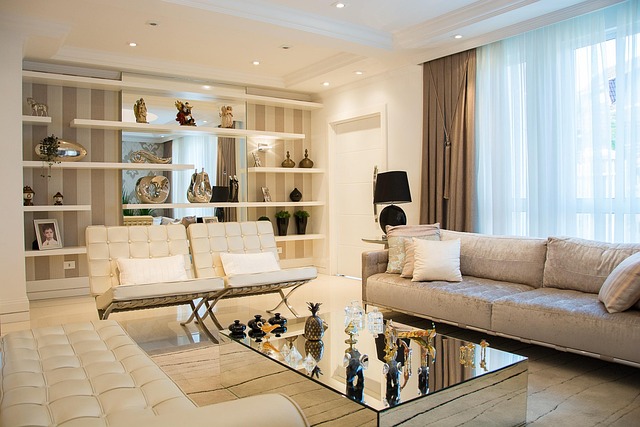Understanding home renovation costs requires recognizing that budgeting is an art. Prices are driven by factors like scope, design, materials, labor, and location. Renovation budget planning involves using guides and online renovation cost estimators for a baseline, plus contingencies for surprises. For kitchen and bathroom renovations, costs average $50k-$100k and $15k-$40k respectively, with detailed remodeling cost breakdowns including permits, plumbing/electrical, flooring, cabinets, countertops, appliances, and finishing touches. Distinguish between variable (material, labor) and fixed costs (permits, management fees) for effective budgeting using a renovation pricing guide. Online estimators provide a starting point, but tailor your affordable home renovation budget to account for regional variations and potential unforeseen issues.
Planning a kitchen or bathroom renovation? Understanding the costs and budgeting effectively is crucial. This comprehensive guide, ‘Renovation Budgeting: A Comprehensive Pricing Guide for Kitchens & Bathrooms’, demystifies home renovation spending. We break down typical expenses, from cabinets to construction, highlighting regional variations. Learn steps to create a realistic budget, explore cost-saving strategies like DIY versus professional services, and discover tools to estimate project costs. Get ready to transform your spaces affordably!
Understanding Home Renovation Costs: Factors to Consider
Understanding Home Renovation Costs: Factors to Consider
When diving into kitchen or bathroom renovations, it’s crucial to have a solid grasp on the home renovation costs involved. The first step is recognizing that renovation budgeting isn’t an exact science; various factors can significantly impact the final price tag. These include the scope of work, the complexity of designs, material choices, labor rates, and even location-specific prices. For instance, upgrading a simple kitchen backsplash might be relatively affordable, while a complete bathroom remodel with custom tiles and top-of-the-line fixtures could dramatically increase costs.
Before tackling any renovation project, careful planning is essential. Researching a renovation pricing guide and using online cost estimators can give you a basic idea of expected expenses. However, remember that these tools are just estimates; actual home upgrade expenses can vary widely. Consider creating a detailed budget that accounts for contingencies—unforeseen issues that may arise during the project—and keep in mind that affordable home renovation doesn’t necessarily mean sacrificing quality or aesthetics. A well-informed renovation budget planning process ensures you’re prepared to navigate the remodeling expenses and make informed decisions throughout the transformation.
– Breakdown of typical expenses for kitchen and bathroom renovations
Kitchen and bathroom renovations are among the most popular home upgrades, but they can also be significant investments. Understanding the typical expenses involved in these projects is essential for effective renovation budget planning. According to recent trends and a renovation pricing guide, materials and labor costs vary widely depending on the scope of work and your location. On average, expect to spend between $50,000 to $100,000 for a mid-range kitchen remodel, while bathroom renovations typically range from $15,000 to $40,000.
A detailed cost breakdown includes permits and inspections ($500-$2,000), plumbing and electrical work (varies), flooring (averaging $3-$10 per square foot), cabinets (typically $5,000-$15,000), countertops (around $50-$200 per square foot), appliances (ranging from a few hundred to several thousand dollars), and finishing touches like fixtures and hardware (a few hundred to a couple thousand dollars). Utilizing affordable home renovation strategies and seeking quotes from multiple contractors can help you manage these expenses, ensuring your project stays within budget.
– Variable costs vs. fixed expenses
When budgeting for kitchen and bathroom renovations, understanding the distinction between variable costs and fixed expenses is crucial for effective renovation budget planning. Variable costs are those that fluctuate based on your choices and options, such as materials, labor rates, or even design changes during the remodeling process. On the other hand, fixed expenses remain consistent regardless of your decisions. This includes items like permits, project management fees, and some overhead costs associated with contractors.
To navigate these differences, it’s recommended to create a detailed renovation pricing guide that accounts for both variable and fixed home upgrade expenses. Utilizing cost estimators can provide a solid foundation for your budget by considering typical remodeling cost breakdowns for specific projects. An affordable home renovation doesn’t have to compromise quality; careful planning and understanding of these cost factors enable you to make informed decisions, ensuring your project stays on track financially.
– Regional differences in pricing
When planning a kitchen or bathroom renovation, it’s crucial to understand that renovation pricing guides vary significantly across regions due to local market conditions and labor costs. For instance, metropolitan areas like New York or San Francisco tend to have higher home renovation costs compared to smaller towns or rural areas. This regional disparity can impact your renovation budget planning considerably.
Before diving into any home upgrade expenses, research is key. Utilize renovation cost estimators available online to get a basic breakdown of potential remodeling expenses. Keep in mind that these estimates are just that—estimates. Actual remodeling cost breakdowns can differ based on factors like the scope of work, quality of materials chosen, and unforeseen issues discovered during the renovation process. Therefore, it’s essential to set an affordable home renovation budget that accounts for both expected and unexpected costs.
Renovating your kitchen or bathroom involves navigating a complex landscape of costs. By understanding the typical expense breakdown, differentiating between variable and fixed costs, and recognizing regional variations, you can create an effective renovation budget plan. Utilizing reliable cost estimators and staying mindful of affordable options will ensure your home upgrade expenses align with your goals. With thoughtful planning, you’ll be well on your way to a successful and financially manageable renovation journey.
